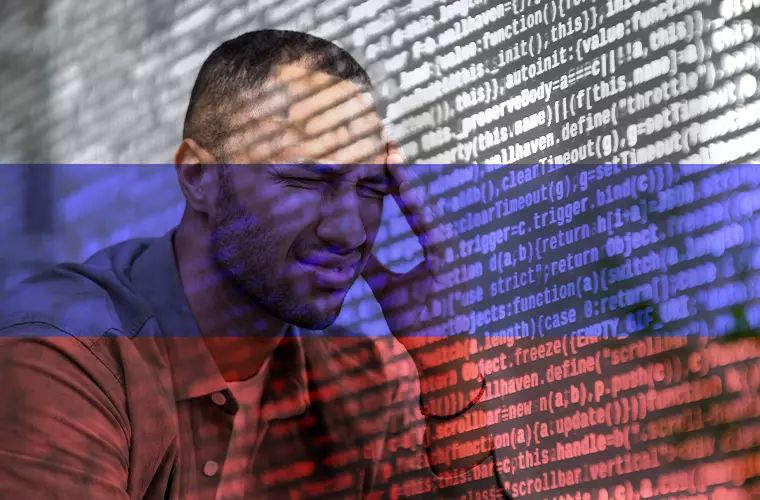Compelling new evidence suggests that a shadowy group within Russia’s GRU military intelligence, known as Unit 29155, could be orchestrating attacks on American personnel using directed energy weapons.
Previously implicated in high-profile assassination attempts and sabotage operations across Europe, the unit is now suspected of being behind the controversial and mysterious afflictions known as “Havana Syndrome,” which have plagued U.S. officials around the globe, according to a joint investigation by The Insider, 60 Minutes, and Der Spiegel.
Havana Syndrome, officially known as “Anomalous Health Incidents” (AHI), describes a mysterious medical condition reported by U.S. officials and military personnel mainly while serving abroad.
First reported in 2016 among embassy workers from the U.S. and Canada in Havana, Cuba, symptoms of Havana Syndrome include sudden extreme headaches, ear pain, dizziness, nausea, and cognitive issues. In some cases, long-term health consequences have ended careers and altered lives.
Victims of Havana Syndrome recount nearly identical experiences, including sudden intense pain brought on by a mysterious and unseen crippling force.
“It was like this piercing feeling on the side of my head, and I got vertigo,” Olivia Troye, the Homeland Security Advisor to Vice President Mike Pence, recounted to 60 Minutes about an experience she had outside the White House in 2019. “I was unsteady. I felt nauseous, and I was somewhat disoriented.”
Former covert CIA officer Marc Polymeropoulos said he had a terrifyingly similar encounter in a Moscow hotel room in 2017. “I couldn’t stand up,” Polymeropoulos noted in a 2020 interview with G.Q. “I was falling over. I had an incredible sense of nausea and ringing in my ears. I was, frankly, terrified.”
Troye and Polymeropoulos are among the more than 1,000 U.S. officials who, over the past eight years, have reported experiencing what seems to be an attack by a debilitating directed energy weapon.
Yet, despite numerous reports suggesting a pattern, the idea that a foreign adversary might be intentionally targeting U.S. officials, or even the recognition of “Havana Syndrome” as a genuine condition, has become a point of contention in Washington, D.C.
Investigations into Havana Syndrome have frequently resulted in unclear and sometimes conflicting conclusions.
In February 2022, a White House panel of experts concluded that radio waves could cause some of the injuries associated with the mysterious incidents. However, the panel also found that most incidents could be explained by stress or psychosomatic reactions.
In the same month, a report by the JASON Advisory Group commissioned by the State Department found that it was unlikely that Havana Syndrome incidents resulted from directed energy attacks.
In March 2024, two major studies by the National Institutes of Health examining the conditions of over 80 government employees and family members who experienced “anomalous health incidents” found no consistent evidence of brain injury.
In an editorial published in the Journal of the American Medical Association, Stanford microbiologist Dr. David Relman, who has investigated cases of Havana Syndrome, criticized the NHI’s findings.
“One might suspect that nothing or nothing serious happened with these cases. This would be ill-advised,” Dr. Relman wrote. “Two detailed investigations of AHIs (in which I played a role) found the cases with abrupt-onset, location-dependent sensory phenomena to be unlike any disorder reported in the neurological or general medical literature, and potentially caused by an external mechanism.”
While the scientific community is still uncertain about the legitimacy of Havana Syndrome as a medical condition, a March 2023 report from seven U.S. intelligence agencies deemed it “very unlikely” that the symptoms reported were caused by an energy weapon or a foreign adversary. The Office of the Director of National Intelligence (DNI), in its 2024 Annual Threat Assessment, reinforced this stance, dismissing the idea of foreign adversarial involvement.
“We continue to closely examine anomalous health incidents (AHIs), particularly in areas we have identified as requiring additional research and analysis,” the DNI’s annual report reads. “Most I.C. agencies have concluded that it is very unlikely a foreign adversary is responsible for the reported AHIs.”
Yet new unnerving details from a recent joint investigation by The Insider, 60 Minutes, and Der Spiegel challenge these claims of no foreign adversary involvement. Journalists reportedly uncovered persuasive evidence that a unit within Russia’s GRU military intelligence, Unit 29155, may be responsible for the contentious Havana Syndrome incidents.
In October 2021, U.S. officials at the U.S. Embassy in Tbilisi, Georgia, reported experiencing anomalous health incidents. According to The Insider, travel logs and cell phone metadata reveal that during the time of these attacks, a Russian intelligence operative and member of Unit 29155, Albert Averyanov, was in Tbilisi.
Averyanov’s presence in Tbilisi offers some circumstantial evidence. However, journalists say that in this case, they were also able to place the GRU operative at the scene of the crime.
After experiencing a sudden piercing headache and ringing in her ears, “Joy” (a pseudonym), the wife of a Justice Department attaché in the U.S. Embassy, said she saw a tall, thin man standing by a black Mercedes near the gate to her home. When shown a photo of Averyanov, “Joy” described having a “visceral” reaction, saying, “I can absolutely say that this looks like the man that I saw in the street.”
According to reports, in addition to being a Russian intelligence operative, Averyanov is also the son of General Andrei Averyanov, an influential deputy director in GRU and the founding commander of Unit 29155. The Insider, 60 Minutes, and Der Spiegel say obtained phone and travel records revealed Averyanov was in constant communication and in the company of other known members of GRU’s Unit 29155.
Averyanov isn’t the only member of Unit 29155 journalists tracked down and associated with instances of Havana Syndrome attacks.
Through phone and travel records, The Insider was able to identify seven alleged members of GRU’s Unit 29155 stalking around Europe in the days leading up to a series of previously unreported anomalous health incidents at the U.S. consulate in Frankfurt, Germany, in 2014.
A U.S. consulate official in Frankfurt named “Taylor” (a pseudonym) told reporters that on November 4, 2014, he suddenly heard a “high-pitched squeal,” accompanied by intense pressure, which caused him to vomit and pass out. German doctors diagnosed him with vestibular neuronitis and high blood pressure. Once back in the U.S., “Taylor” was diagnosed with a traumatic brain injury.
Weeks before the attack, “Taylor” said he had confronted a “tall, muscular man with a military bearing” and a “strong Russian accent” acting suspiciously near the U.S. consulate residential complex.
When shown several photographs, “Taylor” identified Egor Gordienko as the suspicious man he’d seen lurking near the consulate years prior. “Yes, that’s him,” “Taylor” told The Insider. “I’m getting goosebumps looking at him now.”
A previous investigation by the outlets Bellingcat and The Insider linked Gordienko to GRU’s Unit 29155 and the 2015 attempted assassination of Bulgarian businessman Emelyan Gebrev.
Further bolstering the Kremlin connections, journalists obtained a classified Russian document showing a 2017 commendation issued to Colonel Ivan Terentiev, commander of the “Group for Special Tasks of Unit 29155.” The purpose of the commendation was for research work Terentiev had done on the “potential capabilities of non-lethal acoustic weapons in combat activities in urban settings.”
In January 2024, the Bulgarian government issued a European Arrest Warrant for Terentiev, accusing him of being involved in the destruction of several Bulgarian arms facilities between 2011 and 2020.
Speaking publicly for the first time, recently retired Army Lieutenant Colonel Greg Edgreen, who ran the Defense Intelligence Agency’s (DIA) investigation into Havana syndrome from 2021 to 2023, further affirmed Russia’s connections to AHI attacks in an interview with 60 Minutes.
“One of the things I started to notice was the caliber of our officer that was being impacted,” Edgreen said. “This wasn’t happening to our worst or our middle-range officers. This was happening to our top five percent, 10 percent performing officers across the Defense Intelligence Agency.”
“And consistently, there was a Russia nexus. There was some angle where they had worked against Russia, focused on Russia, and done extremely well.”
Edgreen, who had access to extensive classified intelligence regarding the mysterious health incidents, firmly believes that the Kremlin is responsible for Havana Syndrome.
“If I’m wrong about Russia being behind anomalous health incidents, I will come onto your show. And I will eat my tie,” Edgreen told 60 Minutes.
Edgreen’s assertions, corroborated by journalists’ findings, suggest that the Havana Syndrome attacks are part of a calculated campaign by Russia. This connection is underscored by an eerie precision in targeting individuals with significant roles in counteracting Russian operations, hinting at a deliberate strategy to debilitate U.S. intelligence capabilities.
Marking a sophisticated dimension of hybrid warfare, this also suggests that Russia is using technology that remains at the fringes of the public’s understanding but has devastating effects on its targets.
These recent revelations also reveal a troubling undercurrent of denial and obfuscation within the U.S. government’s response. This ultimately ignites a firestorm of questions about the United States’ preparedness to confront and counter unconventional tactics, the effectiveness of its response to protect its personnel, and the broader implications for international norms governing espionage and warfare.
In an interview with The Insider, the first CIA officer to experience “Havana Syndrome” in Cuba openly criticized the U.S. government’s handling of these disturbing incidents.
“What this long-term investigation has shown is that either the intelligence community is incapable of carrying out its most basic function,” the unnamed CIA officer said. “Or it has worked to cover up the facts and gaslight injured employees and the public.”
Tim McMillan is a retired law enforcement executive, investigative reporter and co-founder of The Debrief. His writing typically focuses on defense, national security, the Intelligence Community and topics related to psychology. You can follow Tim on Twitter: @LtTimMcMillan. Tim can be reached by email: tim@thedebrief.org or through encrypted email: LtTimMcMillan@protonmail.com.

